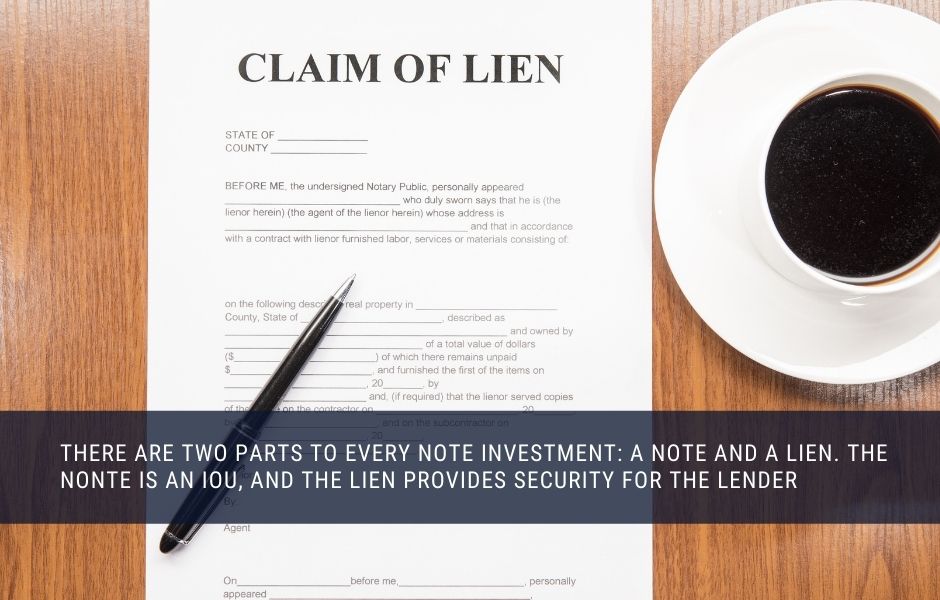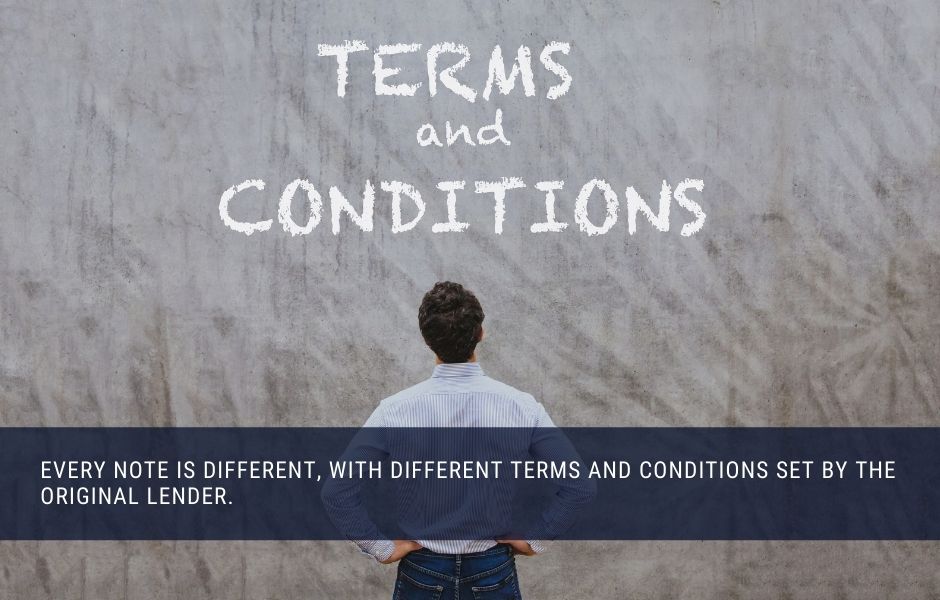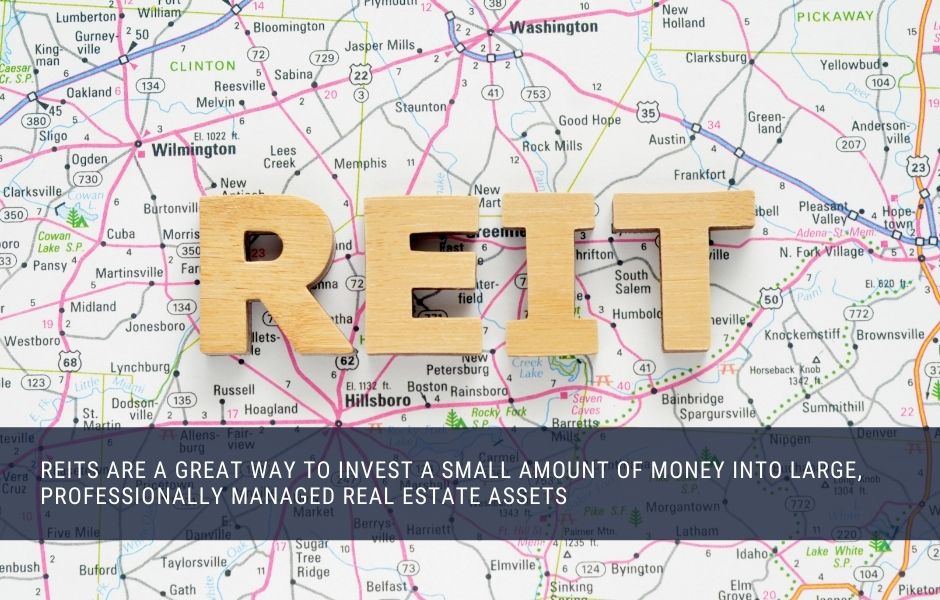Real Estate Notes vs REITS – Which is the Best Investment?

David Garner
Real Estate Notes vs REITS
With interest rates at historic lows, and trillions of Fed stimulus dollars driving up asset prices, investors are turning to real estate as the go-to asset class for 2021. But what will be the best way to invest as the economy rebounds from Covid? In this article, we compare investing in real estate notes with real estate investment trusts (REITs).
Get Exclusive Note Listings: Receive Exclusive Details of Real Estate Notes for Sale Every Week in our Priority Investor Email
Contents
- Real Estate in 2021
- What is a Real Estate Note?
- What is a REIT?
- Which is the Better Investment?
- Some More Note Investing Articles
Real Estate in 2021
As we are all now very much aware, the current economic climate is defined largely by Federal money printing and low interest rates. As investors, it is important for us to understand what this means, and how to adapt our strategy, and objectives accordingly.
Rising Asset Prices
One thing is certain; most of the trillions of dollars that have been added to the economy have ended up in the pockets of the rich. As such, they are being spent on things that the rich spend their cash on.

The rich do not spend their excess billions on more bread and milk than they would normally buy. So, demand for – and therefore the prices of – consumer goods have not risen in any concerning way. In fact, the rich typically use their money to buy assets like stocks, bonds, gold, and real estate. Therefore, asset prices have continued to rise despite the economic devastation caused by the global Covid pandemic.
Money Flows Upwards
Even the money that has been handed out to citizens directly has very quickly flowed back upstream in the form of rents and mortgages. And so, it is the owners of assets whose wealth is preserved, while the rest of us are left to pay it back in the form of higher taxes, higher asset prices, and the devaluation of cash.
Add into the mix super-low interest rates driving better-than-ever affordability in the housing market, as well as a desperate need among investors for alternative sources of income, and you have a perfect investment case for real estate in 2021.

But how to invest? Of course, there are lots of options. Real estate is, after all, one of the most accessible investment assets. Anyone can buy a property – providing they can come up with the cash of course.
Related: Note Investing 101 – Everything you Need to Know About Note Investing
What is a Real Estate Note?
Real estate notes are effectively debt instruments. They can be a great way to invest in real estate without having to own costly and time-consuming assets like houses, apartment complexes or other high-maintenance assets. Investors tend to buy real estate notes for the income they produce, or to take ownership of the underlying real estate at a discount to market value.
The Note and the Lien
In actual fact, there are two parts to what is commonly referred to as a ‘real estate note’: a promissory note, and a lien such as a trust deed or mortgage deed. The note is a contract between borrower and lender. This contains the terms and conditions of the loan such as the amount of the debt, interest rate and repayment schedule.
The lien records the debt in the name of the lender on the title to a piece of real estate in the County records. This provides the security for the lender’s investment as the lien must be settled if the loan is foreclosed or the property is sold.
Related: What is a Real Estate Note and What Terms Should It Contain?
Performing vs Non-Performing Real Estate Notes
Broadly speaking, there are two types of real estate note: performing, and non-performing. A note is performing when the borrower is current on all payments. If the borrower falls behind – usually by 90 days or more – the note become non-performing and loses a ton value.

Investors looking for income tend to buy performing notes, while investors looking for big capital gains might buy non-performing notes and seek to modify the loan with the borrower (a reperforming note) or foreclose the loan to access the real estate.
Performing notes are generally seen as safe, stable assets most suitable for hands-off investors. Non performing note investing, if well executed, can be very profitable, but takes a lot of time, knowledge and resources to get right.
Related: Performing vs Non-Performing Notes – Which is the Better Investment?
Key Advantages to Real Estate Notes
One of the biggest attractions to real estate notes is the fact that you are investing in debt, not equity. This means you are usually always first in line to be paid out in a worst-case scenario.
Real estate notes are also way less hassle to own than physical real estate. There are no tenants to manage, no repairs to undertake, and no property taxes to pay. As with any mortgage, the real estate note investor is the bank, and simply collects their monthly interest check regardless of whether rent is collected on time, or a HVAC needs replacing.
Notes are also way more liquid than the underlying real estate. You can buy and sell real estate notes very quickly and freely, with much less time, money and effort than selling houses.

Probably the biggest reason investors choose real estate notes as their preferred method of investing is the fact that they generate reliable, consistent monthly income. With compound interest (reinvesting income into more assets) being the most powerful and efficient driver of superior long-term returns, any asset that creates fresh money to reinvest at regular intervals can be extremely valuable for investors.
So, that’s real estate notes. A simple, effective way to invest passively in real estate. Now let us turn our attention to another investing vehicle, REITs.
What is a Real Estate Investment Trust (REIT)?
REITs are a great way to invest a small amount of money in large, professionally managed real estate assets.
A REIT is a just a corporate entity that owns, operates, or lends money secured against income-producing real estate. Most REITs are publicly traded, and so smaller investors can buy shares to effectively own a small piece of the underlying property portfolio.
There are all sorts of REITs to choose from. Equity REITs own real estate, Mortgage REITs own mortgages, and Hybrid REITs own a combination of debt and equity. Most REITs specialize in one type of real estate such as single-family homes, apartment buildings, industrial properties, logistics real estate, hotels, medical facilities, offices, retail centers, or others.

There are certain IRS requirements a company must meet to qualify as a REIT, including owning income-producing property, and the distribution of that income to shareholders.
Key Advantages to REITs
You can invest in a REIT with a very small amount of money. In fact, you could buy just one share in a REIT, so this method of investing in real estate is highly accessible for smaller investors. This is one of the main reasons REITs were introduced in 1960; to provide allow smaller investors the opportunity to buy shares in commercial real estate portfolios.
Because most REITs are publicly traded, they are highly liquid. Even more so than real estate notes. This kind of instant liquidity is especially appealing for investors in today’s largely uncertain economic climate.
REITs are great income investments. The underlying property portfolios tend to generate monthly or quarterly income in the form of rents and business income, but they do not often offer much in the way of capital appreciation.
Which is the Better Investment?
So, with the basics of both real estate notes and REITs now laid out, which makes for the better investment in 2021? Well, the answer to that question is highly subjective. While investing in a REIT might fit with the goals one investor, real estate notes might be the perfect choice for his or her neighbor.

If you have a relatively small amount of money to invest, choosing a long-standing, reliable REIT with a great track records might be the best way for you to own real estate. With a little more cash available, a single real estate note with a good borrower and strong collateral will deliver a better yield. And also offers the simplicity of a single charge in your name over a single piece of real estate that can be sold in a worst case scenario.
However you choose to invest, invest you must. As more and more new money is printed by the Federal Reserve, the value of cash will continue to depreciate. And so you must store your wealth in an asset that is likely to appreciate, and preferably one that generates income to reinvest for compound growth.
So, there you have it, my comparison of REITs and real estate notes as an investment in 2021. I hope you have found this article useful. If you want to see exclusive details of real estate notes for sale, you can subscribe to our weekly Priority Investor email here.
Related: Note Investing vs Rental Properties – Which is the Best Investment?
Some More Note Investing Articles
- Where to Buy Mortgage Notes – A Complete List of Verified Sources
- Note Investing 101 – Everything you Need to Know About Note Investing
- What is a Note and What Terms Should It Contain?
- Performing vs Non-Performing Notes – Which is the Better Investment?
- The Private Lender’s Guide to Assessing Credit Risk
- Understanding Lien Position and Priority
- How to Buy Mortgage Notes Online in 2021
- How to Assess Real Estate for note Investing and Private Lending
- Find Performing Notes for Sale in 2021
- Private Lending 101 – Everything you Need to Know About Private Money Lending
- Is Buying Mortgage Notes a Good Investment in 2021?
- Note Investing vs Rental Properties – Which is the Best Investment?
- Performing Notes – What Why and How to Buy
- Is Real Estate Note Investing Risky?
External Resources:


